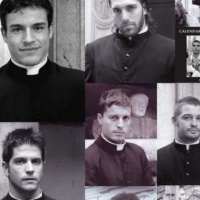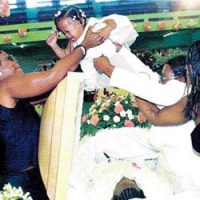“Faith’s supreme drama tells of three days which form the centre and the turning point of history. Yet ironically the centre of the drama itself is an empty space… The second day appears to be a no man’s land, an anonymous, counterfeit moment in the gospel story, which can boast no identity for itself, claim no meaning, and reflect only what light it can borrow from its predecessor and its sequel. The midway interval at the heart of the unfolding story might itself provide an excellent vantage point from which to observe the drama, understand its actors and interpret its import. The non-event of the second day could after all be a significant zero, a pregnant emptiness, a silent nothing which says everything. We shall see.”
Easter Saturday, he concluded, was not a day of drama like the day before, or of celebration, like the day after; instead it was one of quiet endurance. It was the day in which we all must live our lives as we all eventually pick our way through suffering and death. Describing the cancer treatment, he said he endured “such losses of appearance and identity, of dignity, control and almost life itself, brought ‘Saturday’ moments of farewell, grief and preparations for the end. For like the first Easter Saturday, this was a time of unbounded waiting, of hanging on – sometimes by the hour –without any guarantee of a future to be hung on for.”
“What, finally and realistically, can be said and done when everyone involved feels so impotent and tongue-tied before tragedy, grief and suffering? Little that is meaningful, this author can testify, as both victim and perpetrator of gross, sometimes hilarious, pastoral ineptitude! Little, that is, beyond a Christ-like, cruciform togetherness which weeps with those who weep and rages with those who rage. But perhaps when we do that, we do everything. If we allow our words, our manner, our status or professionalism, or – deadliest of all in certain circumstances – our breezy faith and heroic confidence, to distance us from those who doubt and stumble, weep and hurt, we surely betray the God of the cross and of the grave, obscuring the truth that their vexation is but a shadow of God’s own anger, and their tears an earthly drop on the ocean of heavenly grief.”
–ooOOoo–
Born in Belfast, Lewis was a student at St Andrews University, where he studied classical Hebrew under Professor WB Honeyman, an atheist who had to be ordained in order to secure his position, such was the academic system when he began his career in the 1930s. He went on to lecture at Edinburgh University, where he quickly developed a reputation as one of Scotland’s finest theologians.
In 1987, he was poached by the Austin Presbyterian Seminary in Texas with the offer of the chair of theology, but during the medical a tumour was discovered. For the next seven years, he embarked on two wearing, attritional experiences, the first was a struggle to endure the pain and despair of a terminal illness, while longing to stay with his wife and see their son grow. The second was an attempt to bore down through the layers of meaning that had coalesced for two millenniums around this strange day, which, for the faithful, was the fulcrum on which human history swung from darkness into light.
(The Scotsman, article – 30 March 2013, Holy Saturday)
Related articles
- Holy Saturday (kenarah.wordpress.com)
- Good Friday and Holy Saturday: Waiting for the Resurrection (christianthought.hbu.edu)
- Holy Saturday: The Reality of Death (newwaysministryblog.wordpress.com)
- http://www.huffingtonpost.com/2012/04/03/jesus-holy-saturday_n_1398224.html










Pingback: God and man at cross purposes | Dr Ken Baker
Reblogged this on Sky Pilot.
LikeLike
Pingback: Time and Timelessness: James Taylor and the Creative Process | More Enigma Than Dogma
Pingback: Audacious Subversion and Humble Recognition | More Enigma Than Dogma
Pingback: What Language Shall I Borrow | More Enigma Than Dogma
Pingback: Remembering as a Dynamic of Responsibility | More Enigma Than Dogma
Pingback: A Global Tombstone to Hanlon’s Razor | More Enigma Than Dogma
Pingback: A Prayer for Holy Saturday | Curriculum of the Spiritual Life